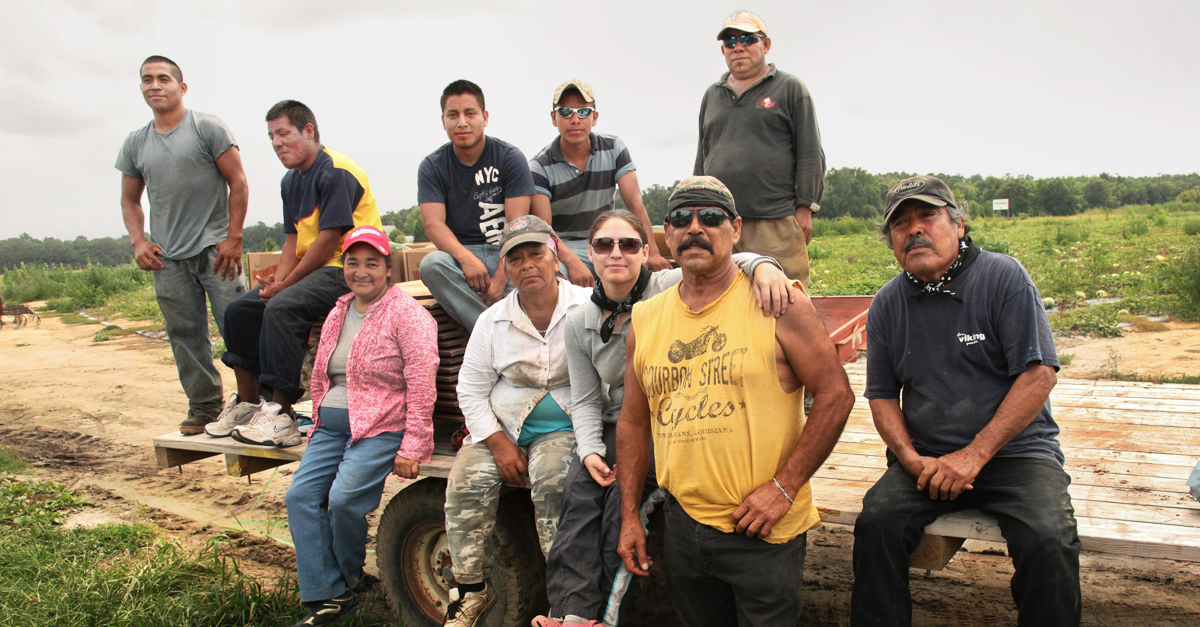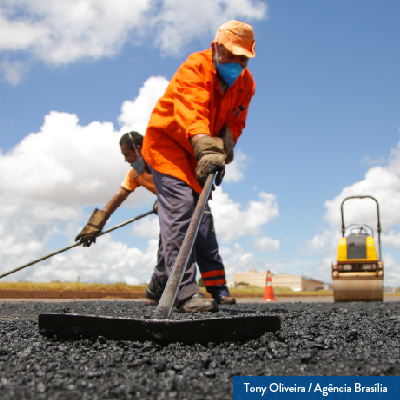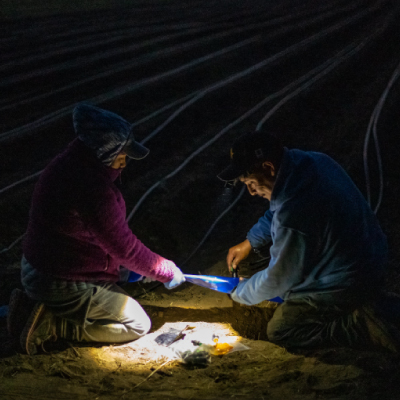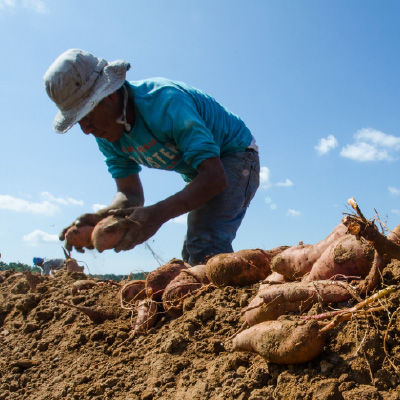- Who We Are
- Clinician Employment
- Publications
- Witness to Witness (W2W)
- El Premio Kugel & Zuroweste a la Justicia en la Salud
- Your Voice Matters: Photovoice Project
Thu, 03/31/2016 | by Claire Hutkins Seda

 Today is the final day of Farmworker Awareness Week, which culminates each year on March 31st, Cesar Chavez’s birthday.
Today is the final day of Farmworker Awareness Week, which culminates each year on March 31st, Cesar Chavez’s birthday.
Despite the years of important work of Cesar Chavez and many others, agriculture continues to be one of the most dangerous occupations in the US, and protections for farmworkers still lag behind protections for workers in other industries. But there is reason to be hopeful; last year, the Environmental Protection Agency released an updated Worker Protection Standard, which promises to improve safety conditions for farmworkers by reducing the risk of occupational pesticide exposure. This year, MCN is working hard to assure implementation of the new stronger WPS. There’s still lots of work to do. Last year in the journal New Solutions, MCN’s Kerry Brennan, Environmental and Occupational Health Program Manager, with co-authors Jeannie Economos (Farmworker Association of Florida) and Marco M. Salerno (CATA), published a collection of farmworkers’ first–hand accounts of pesticide exposure, that had been submitted to the EPA to illustrate the urgent need for a stronger WPS. Here is one farmworker’s experience:
Alicia has worked for ten months on Florida farms and never received a pesticide training. Unequivocally, she stated, “Yes, I would like to know everything I can about pesticides, but I am not comfortable asking my boss about it,” emphasizing her fear of retaliation if she were to lawfully ask for basic safety information. “On the first few days,” she reflected, “I felt dizzy and I got rashes on my arms. I had to go to the hospital.” This incident occurred “when they were spraying the plants; I do not know what type of liquid it was.” Alicia ultimately confessed, “I like the work, but I don’t know how much it affects my health.”
The article gives voice to nine farmworkers from across the Eastern Seaboard, who all have experienced pesticide exposure or know of coworkers who have suffered the repercussions of exposure.
Dulce is fifteen years old and lives on the Maryland farm where her father works. She says, “He [my father] has a lot of contact with pesticides. I am interested in learning more about pesticides; learning about the [health] risks that one may have when dealing with pesticides.” Dulce is also aware of the family’s contact with pesticide residues, “In addition, the clothes my father wears when he applies pesticides comes into contact with the family.” Dulce is referencing “take-home exposures” which occur when farmworkers inadvertently expose their family members to pesticide residues which remain on their clothes and shoes, or seats of their car. The revised WPS mandates that training for farmworkers include best-practices for reducing take-home exposures.
As we wrap up Farmworker Awareness Week, let us remember that farmworkers encounter pesticide risks every day as a result of insufficient regulations. The new WPS is an important step in protecting farmworkers’ health; we are looking forward to continuing our partnership with EPA to ensure full implementation and enforcement this year.
Read more about the updated WPS on our Worker Protection Standard page.
Like what you see? Amplify our collective voice with a contribution.
Return to the main blog page or sign up for blog updates here.







